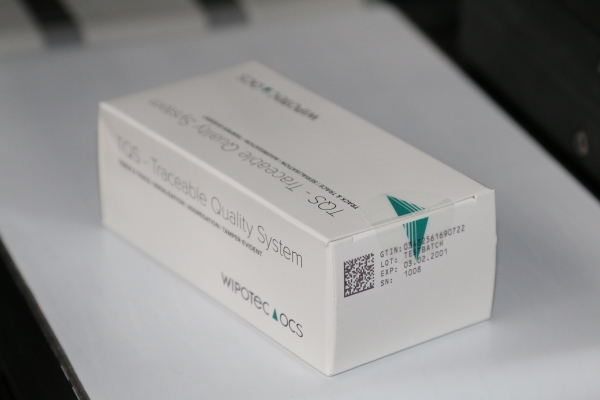
China's Ministry of Finance and the Ministry of Commerce have initiated steps towards lowering trade barriers for international pharmaceutical and medical device companies.
In order to form an interconnected world, with a cost-effective healthcare supply chain, the adoption of common international standards becomes a crucial requirement for the success of all stakeholders. The fact that a country cannot operate in isolation, implementing domestic standards, is exemplified by the Chinese track and trace system implemented in December 2015. Serialization and aggregation at all packaging stages, from a single unit up to a pallet, was an imperative requirement.
Challenges of the earlier track and trace system
The complexity of that system held the requirement to use a linear barcode, as a data carrier, which had to capture the 20-digit Electronic Drug Monitoring Code (EDMC). The disadvantage of the linear barcodes, in contrast to the datamatrix, is that they require a far larger footprint on the package to capture the required amount of information(1). Since printing linear codes on the line negatively affected the overall line efficiency, pharmaceutical manufacturers had to use pre-printed packaging supplies. Another major difficulty is demonstrated by the fact that serial numbers could only be supplied by the government, and manufacturers were not authorized to generate them autonomously. Despite regulatory challenges, China's healthcare sector remained a crucial target market for international pharma and medical device companies.
Inefficiency of the supply chain during the latest drug recall increases the need for action
China’s recent vaccine scandal(2) highlights the importance and urge of having an effective track and trace system in place. Endangering the health of thousands of children, and damaging the credibility of the entire Chinese healthcare supply chain, the pharmaceutical company Changchun Changsheng Life Sciences Ltd. brought expired vaccines to the domestic and foreign markets(3). China’s National Health Commission announced the recall of the defective vaccines from all of the affected countries in a statement on August 8, 2018. However, such recall poses a great challenge that could have been prevented, if an internationally-integrated track and trace system was in place. This increases the need for action and pressure on the government and the country's entire healthcare sector.
Recent activities to lower trade barriers
After the suspension of the system in February 2016, the Chinese Food and Drug Administration (CFDA) announced its intention to reform the serialization and traceability regulations and to align them with international standards. According to the World Health Organization (WHO), the revised system should be compatible with global standards and the scope will include all drugs for human use(4).
The joint notice of the China Ministry of Finance and the Ministry of Commerce on the construction of a modern healthcare supply chain, issued in May 2018, mentions GS1 and the goal to develop a smart supply chain. It also includes a request for municipal governments to submit supply chain construction project plans by June 5 2018. In accordance with this notice, the Shanghai Municipality adopted an action plan to accelerate the establishment of a New Open Economic System. Building an integrated international medical supply chain platform is one of the major action items. In this regard, the 2018 Shanghai International Pharmaceutical Supply Chain Summit was held on August 3 of this year. The central theme of the summit focused on the implementation of the open whole-process traceability strategy for the healthcare supply chain and compliance with the regulatory requirements of CFDA.
Support from international industry representatives and organizations
Together with GS1, WIPOTEC-OCS is supporting supply chain stakeholders during the transition from domestic towards international standards.
Volker Ditscher, business manager at WIPOTEC-OCS, traceability systems, spoke recently at Shanghai First International Pharmaceutical Supply Chain Summit on the topic of international drug serialization and traceability models.
More than 500 key stakeholders from the pharmaceutical industry, 3PL companies, healthcare and research institutions attended this event. WIPOTEC-OCS is also working on the Pilot Free Trade Zone (PFTZ) project to create a demonstration and training showroom on the subject of harmonization of Chinese serialization guidelines.
China’s planned harmonization of the supply chain is a positive leap for the domestic and international healthcare stakeholders and a key step towards lowering trade barriers.

Sources
1. www.gs1.org/docs/healthcare/MC07_GS1_Datamatrix.pdf
2. www.spiegel.de/gesundheit/diagnose/china-impfstoff-skandal-wahrscheinlich-hunderttausende-betroffen-a-1222242.html
3. www.abcnews.go.com/Health/wireStory/china-orders-recall-overseas-vaccine-scandal-churns-57101025
4. www.who.int/medicines/regulation/ssffc/mechanism/country-experience-table_updated-nov2017.pdf

Veronika Shapka is product marketing/marcom specialist at WIPOTEC GmbH
©
SecuringIndustry.com





